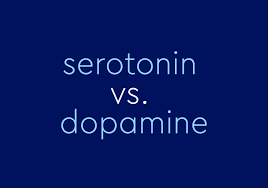Abhyangam—The Healing Therapy
- Dr.Danny Devasy

- May 24, 2025
- 2 min read
The Science of Abhyangam: How Ayurvedic Oil Massage Heals Your Body and Brain
In an age dominated by anxiety, fatigue, and poor sleep, Ayurvedic Abhyanga massage (Snehana Karma—the first pre-treatment process of Panchakarma) is emerging as a scientifically backed stress relief therapy rooted in ancient wisdom. More than just relaxation, Abhyanga deeply influences your autonomic nervous system, balances Vata dosha, enhances lymphatic flow, and supports your body’s ability to detox naturally.

Sympathetic vs Parasympathetic Nervous System: What Modern Life Gets Wrong
Our body’s autonomic nervous system includes two branches:
The Sympathetic Nervous System (SNS), which fuels the fight-or-flight response
The Parasympathetic Nervous System (PNS), which allows the body to rest, digest, and heal
Modern lifestyles—with screen overload, noise pollution, and stress—keep the SNS in overdrive. This causes:
Sleep disturbances
Anxiety and poor digestion
Chronic inflammation
Hormonal imbalance
Abhyanga for nervous system balance works by shifting the dominance from SNS to PNS.
A study in the Journal of Ayurveda and Integrative Medicine found that a single Ayurvedic oil massage session can reduce heart rate by 8–10 bpm, lower blood pressure by 8–10 mmHg, and significantly reduce cortisol, the stress hormone.
How Are Heat and Toxins Released During Abhyanga?
According to Ayurveda, trapped heat and toxins—or Ama—block the body's energy channels (Srotas), resulting in joint stiffness, bloating, and fatigue.
Herbal oil massage in Ayurveda uses warm, medicated oils like Moringa Serum, Dhanwantharam Tailam, and Mahanarayana Tailam to:
Improve circulation
Relieve muscular tension
Enhance lymphatic drainage
Stimulate sweat glands for natural detox therapy
🌡️ Thermal imaging shows a skin temperature increase of 1.5–2.5°C post-massage, indicating improved microcirculation and detoxification.

The Neurochemical Effects: Abhyanga Boosts Serotonin and Oxytocin
Touch activates healing. When Abhyanga is practiced regularly, it creates profound shifts in brain chemistry:
Increases serotonin and dopamine—key neurotransmitters for mood and motivation
Reduces norepinephrine—associated with anxiety and hyperarousal
Boosts oxytocin, the "love hormone"—encouraging feelings of safety and calm.
A 2020 study in Frontiers in Psychology confirms that Abhyanga for anxiety improves GABA levels in the brain, reducing nervous excitability and promoting deeper sleep.
Why Abhyanga is More Than Just a Massage
Modern spa treatments often focus only on the muscles. In contrast, Abhyanga targets marma points, lubricates joints, and realigns mind-body balance.
Regular practice helps:
Reduce Vata dosha imbalance
Strengthen immunity
Improve skin tone and texture
Calm the mind and relieve anxiety naturally
Whether you’re seeking relaxation techniques for anxiety, better sleep, or a natural detox therapy, Abhyanga is one of Ayurveda’s most powerful gifts.
Conclusion: Abhyanga is a Neuroscience-Approved Wellness Ritual




Comments